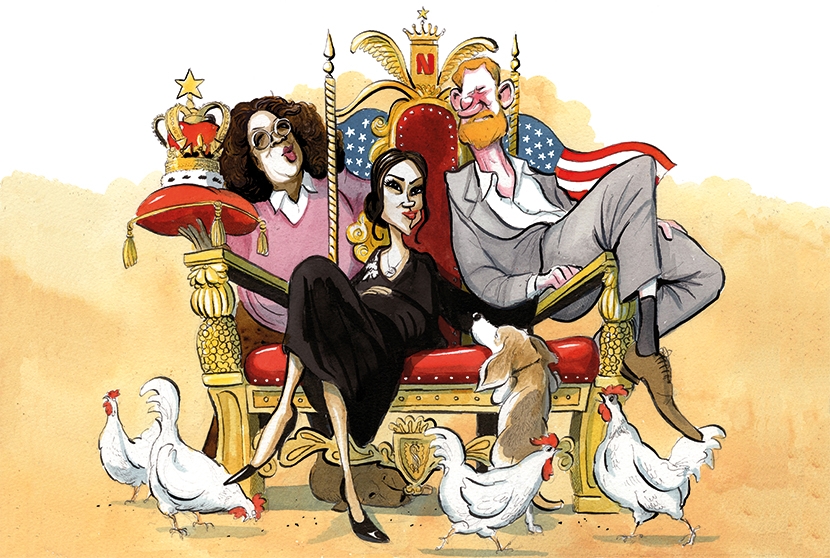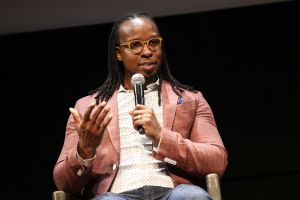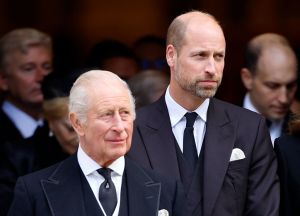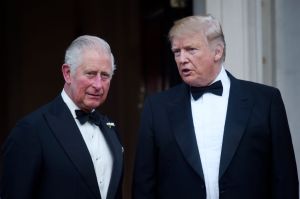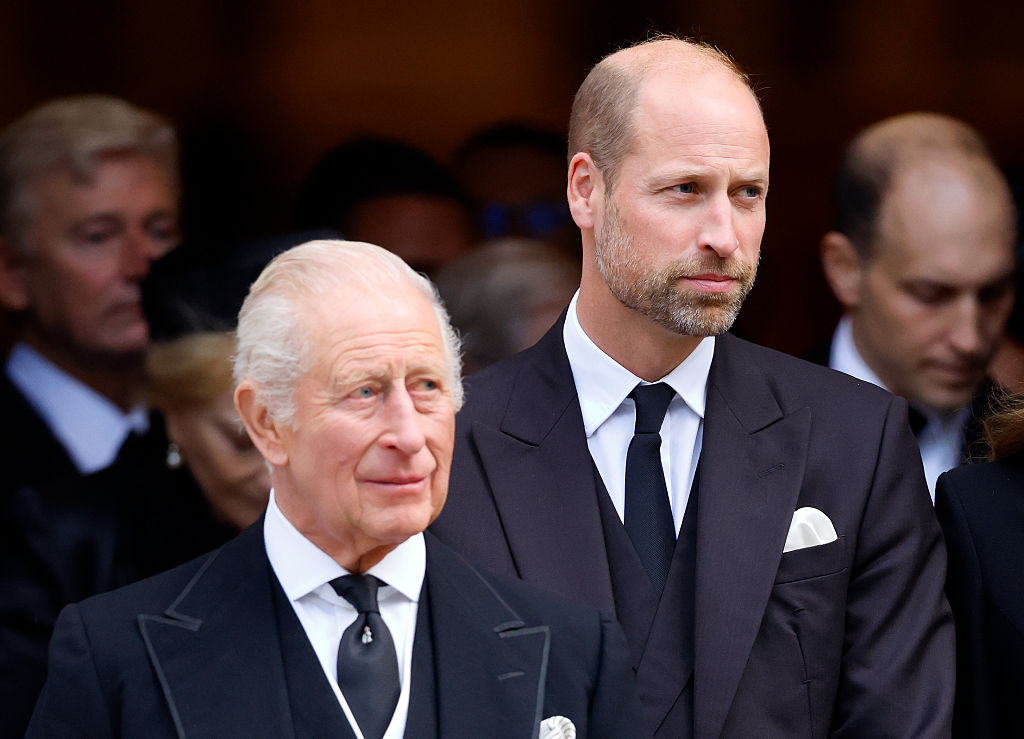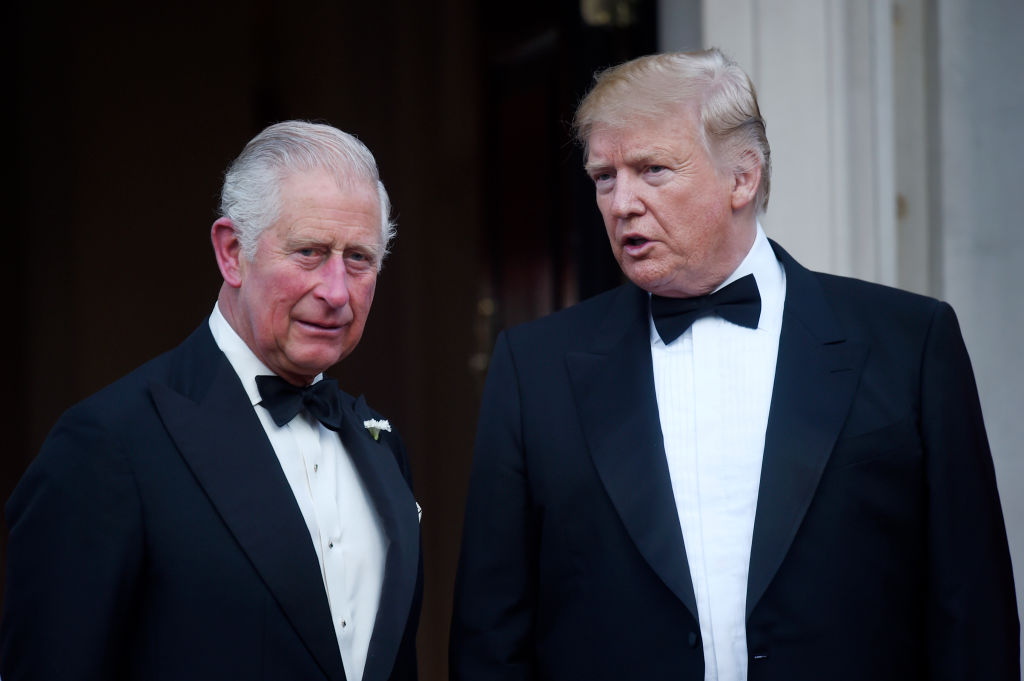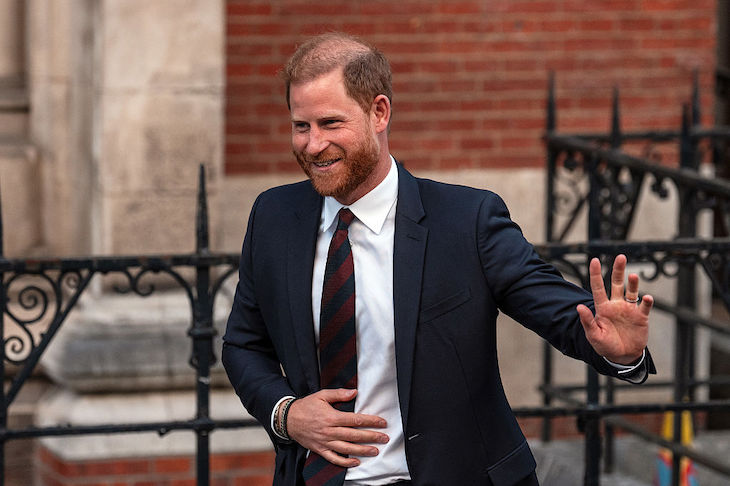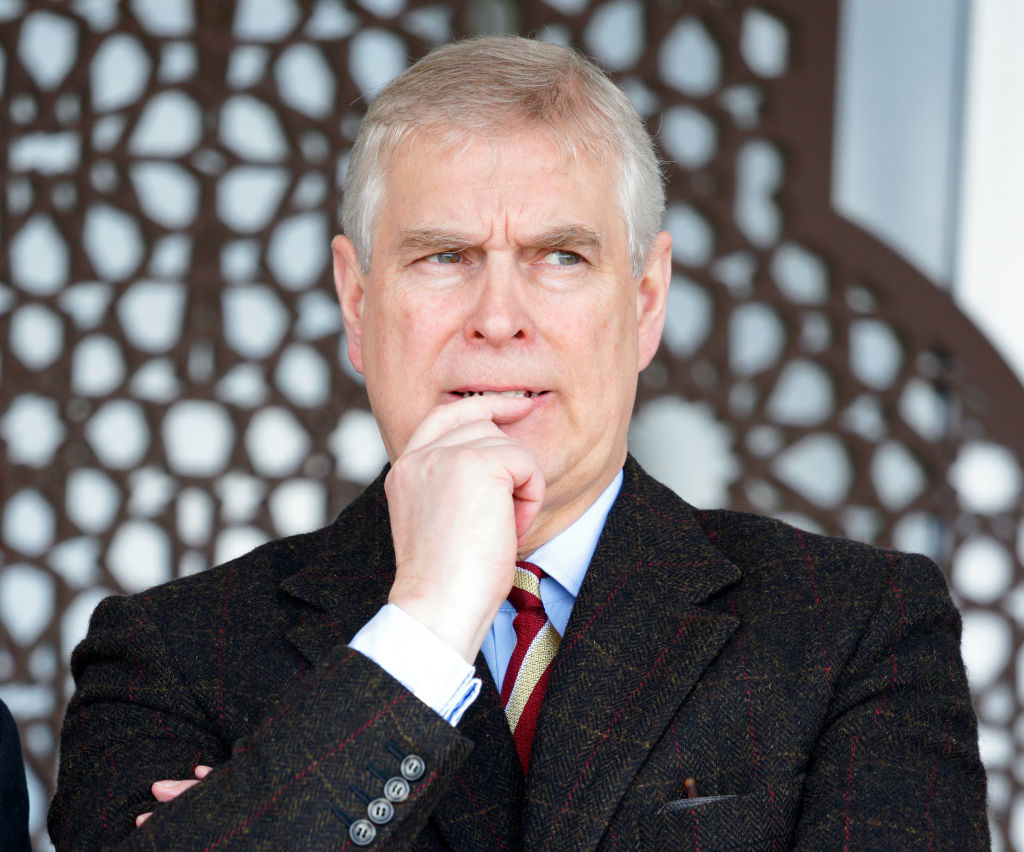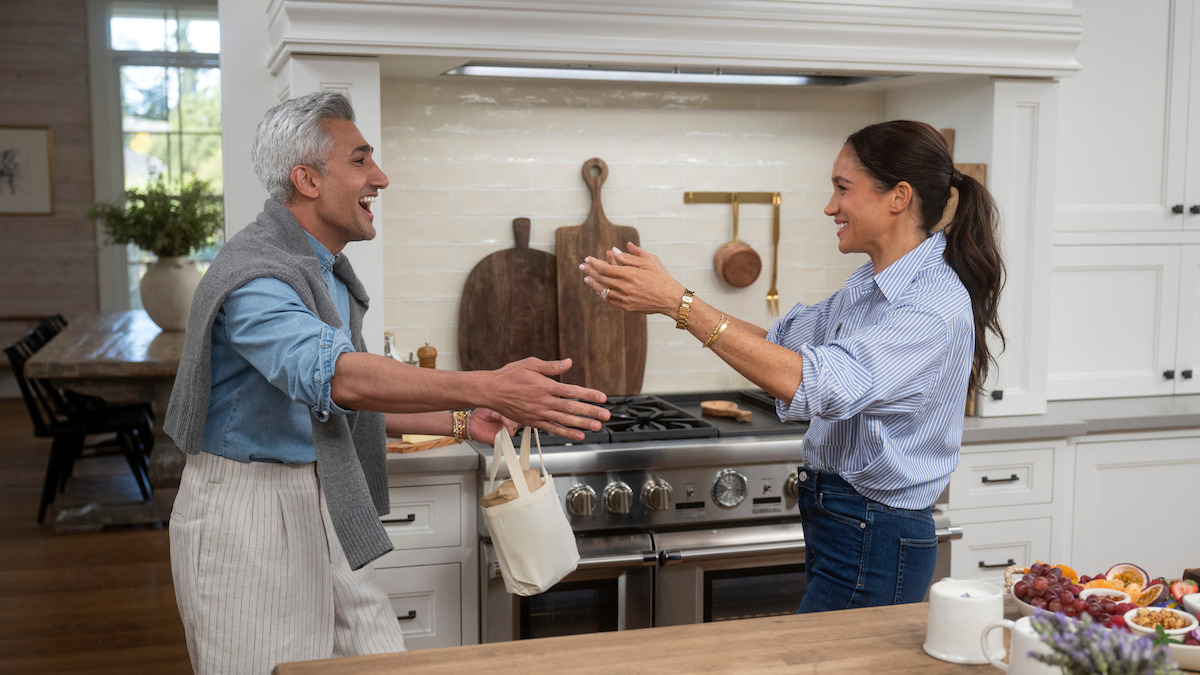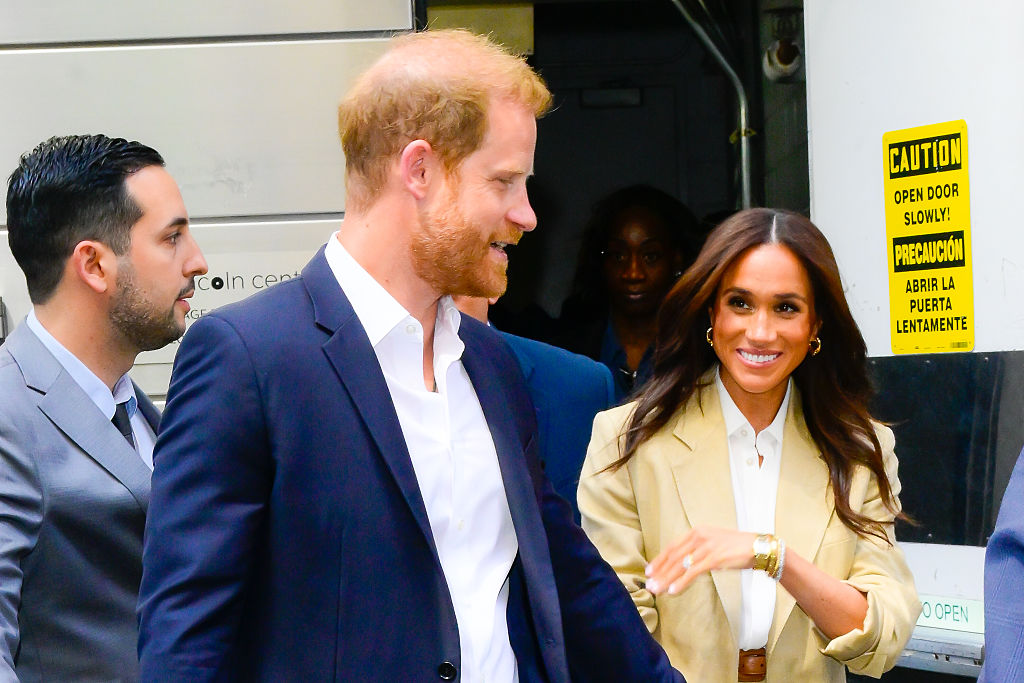Remember the Heads Together campaign? It was back in 2017. Prince William, his wife Kate and his brother Prince Harry, who’d recently begun dating a conspicuously woke actress called Meghan Markle, launched a charitable endeavor to raise awareness about mental health. The princes gave interviews in which they ‘opened up’ about their struggles. Such public emoting made fuddy-duddy monarchists nervous, yet a new generation of royal PR operatives and suck-ups saw the future. The royals were appealing to a younger audience, cleverly rebranding the monarchy for a new age in which it is OK to not be OK. Move over, stiff-lipped oldies, the Windsors were moving on.
Then Harry married Meghan, the brothers fell out, and everyone went crazy. Fast forward to spring 2021, the middle of a global pandemic, and Harry and Meghan are in California, gassing to Oprah Winfrey about ‘their journey’. They’re whingeing about how the monarchy has let them down, how they’ve been silenced and victimized. Standing in a coop with Oprah, among the chickens she and hen-pecked Harry rescued from a battery farm, Meghan is quite seriously comparing herself to the Little Mermaid, the Disney cartoon character: ‘She falls in love with the prince and because of that she loses her voice. But in the end she gets her voice back.’
Harry and Meghan’s parade of self-pity is maddening — that’s the point. People like watching the incredibly privileged talk about how difficult their lives are. And once famous people start treating television appearances as counseling sessions, they can’t stop. That’s how Hollywood rolls. Harry and Meghan may be insanely annoying, but in a world in which celebrity and therapy are king, their logic is infallible. Their Oprah tell-all is a natural endpoint to Prince William’s Heads Together heart-to-heart with Lady Gaga. Except, of course, it’s not the end, because Harry and Meghan are now their own self-perpetuating media brand, a transatlantic rival to the House of Windsor’s PR machine. We’ll be hearing plenty more from them.
What clearly happened is that at some point between 2017 and Megxit in January 2020, somebody in the belly of ‘The Firm’ decided that the oversharing was a bit much. Perhaps it was one of these murkily powerful figures to whom Meghan kept alluding on Sunday night, the ugly baddies of her fairytale. At any rate, William and Kate duly reined in the displays of self-reflection and focused on public duties. Meghan and Harry appear to have had other ideas. Meghan is a Hollywood person: on screen emotion is her modus operandi. Harry, meanwhile, seems besotted with his wife — and believes his mother was killed not by a drunk driver, but by a cruel Establishment and a wicked tabloid press.
It was sad to hear Harry talk in platitudes about his fear of ‘history repeating itself’ because Meghan had contemplated suicide. The irony is that he is repeating his mother’s story by imitating her bids for public empathy and celebrity status outside the royal cocoon. The saddest truth is that history does repeat itself — first as tragedy, then as farce, then in a reality-television loop. It’s not just Diana. Royals have, in fact, been broadcasting their emotions for at least several decades. In 1996 Sarah, Duchess of York, gave an interview to none other than Oprah Winfrey, in which, very much like Meghan and Harry, she talked about the horridness of the media and how she couldn’t abide by the monarchy’s rules because she and Diana were ‘like rivers, we learn more, we want to go round the next bend’. In 2002, Prince Charles confessed in a speech that he was ‘one of those people who feel very strongly and deeply about things… I have come to realize that my entire life so far has been motivated by a desire to heal.’ And last year — who could forget? — Prince Andrew told us his pesky habit of being ‘too honorable’ made him carry on hanging out with the billionaire pedophile Jeffrey Epstein.
Each time, we all pretend that these revelations are a shocking first and that the walls of Windsor’s omertà have finally been breached. That’s another fairytale. In the mass media age, periodic psychodramas actually sustain the monarchy’s mystique. If it were all ribbon-cutting and stiff ceremonies we’d switch off.
Meghan and Harry could be different, however. They are disruptive and postmodern in ways that previous royal rebels could not be. Harry and Meghan know that, thanks to social media, they can be the message and the medium. They intend to be ‘content creators’ with their own podcasts and Netflix shows, through their foundation Archewell. Imagine the dread in Clarence House the next time an Archewell production drops online.
There’s also a religious aspect. The royal family is still institutionally wedded to the Church of England. Yet Harry and Meghan are disciples of the New Millennial Church of Social Justice, aka wokeness, which is a far more potent force. To the woke millennial mind, old-fashioned Christian notions of truth are anathema. How you feel is what’s real. That’s why none of Harry and Meghan’s admirers object to her implausible claim that the couple were married three days before their public wedding in ‘our backyard with the Archbishop of Canterbury’. That would have been illegal, of course, and almost certainly did not happen. Ditto Harry’s claim that he likes taking his son Archie on bike rides, ‘which is something I was never able to do when I was young’. Never mind the photographic evidence of little Harry on his bike with Charles and Diana. If he feels he never went cycling with his parents as a boy, who are you to say otherwise?
Most potent of all is the racial stuff. Meghan is mixed race. That means, in the public court of political correctness, her claims of racist discrimination at the hands of the old white royal family are accepted without question. It doesn’t matter if she and Harry won’t say who said what or when. The context in which some dastardly royal talked about their baby’s skin color is irrelevant. Meghan and Harry say it was racist so it was. Harry said he wasn’t ‘comfortable’ discussing the details. And that’s that.
They now stand established as a rival powerhouse, full of ambition — and willing to send the odd missile over the Atlantic. In saying that she’d been driven close to suicide and suffered racist treatment at the hands of a powerful royal family, Meghan has turned herself into a cause. Politicians have duly rallied around. President Joe Biden, through his press secretary, said it took ‘courage’ for Meghan to admit her torment. Hillary Clinton said it was ‘heartbreaking’ that Meghan was not ‘fully embraced’. Standing in a playground in east London, Sir Keir Starmer, the Labour leader, said ‘the issues Meghan has raised are really serious issues…we have to take [them], I think, very, very seriously’. The Queen has responded with a short statement saying that ‘recollections may vary’ and that the matter will be addressed ‘privately’. The pundit Piers Morgan dared to challenge Meghan’s account. His bosses at ITV reportedly demanded that he apologize, after receiving a complaint from the duchess herself. So Morgan quit.
Scenting blood, activists are now demanding that the royal family atones for its sins. A co-founder of the Black Lives Matter movement, Opal Tometi, has called for a ‘boycott’ of the monarchy, though she didn’t explain what that might entail. Maybe the Duke and Duchess of Sussex have some ideas.
It’s interesting, though, that Meghan and Harry went to such lengths to praise the Queen — even as they trashed the institution she has led for seven decades. The young couple understands the concept of global brands, if nothing else. They know that public perceptions of Elizabeth II are overwhelmingly positive across the world. What Harry and Meghan haven’t figured out is why. It should be obvious: for an extraordinarily long time, the Queen’s mental state has been a private matter. She has always kept her feelings to herself and thus preserved at least the semblance of monarchical dignity. The trouble is, her progeny have not. Après elle, le déluge.
This article was originally published in The Spectator’s UK magazine. Subscribe to the US edition here.



